Creating a stream of income that does not cease when you stop working is the first rung on the ladder to building lasting wealth. If you can find a way to make money even when you are away on vacation, reaching your goal of financial independence will become easier.
But as with most laudable goals in life, the what is not the problem, the how is where you will have some difficulty. Also, like anything worth doing at all, the starting part is often the hardest. That is why in this post we explain the steps for building a stream of passive income through rental properties.
Why Rental Properties?
Why should you choose real estate as your instrument of choice for building passive income? Why not stocks or bonds or some other asset class? There is a reason why almost every millionaire or rich person you will ever meet has a substantial part of their wealth in real estate.
Here are some of them:
- Land is a limited resource: The quantity of land in the world is almost fixed. Demand for land will always be greater than supply. Therefore, land will always have value.
- It meets a tangible need: As Dodson Management Company explains, Rental properties meet a basic human need, shelter. Unlike company products that can go out of demand, people will always need houses.
- Hedge against inflation: Income from a rental property will keep up with inflation because as the prices of goods and services up, the rental rate also increases.
- Better income: Compared to stocks, income from a rental property is stable. Landlords can almost determine how much they earn from their property.
- Control: As a landlord, you have direct control over your property. This is unlike investing in stocks where control is in the hands of company management.
How to Grow Your Passive Income With Rental Properties
These are the steps – divided into four parts – for building a portfolio of income properties.
Part One: Securing the Mortgage
Before you start dreaming of owning properties, be sure you have the financial capability to buy those properties. Like most investors, you will probably need a loan. Here is what you can do to make the mortgage process smoother.
- Improve your credit – The minimum credit score for a rental property loan is 620, but you are better off with a score of 740+. A higher score guarantees the best loan terms.
- Start saving for the down payment: Lenders require a down payment of 20%, at least. If you can pay 25%-30% down, you will be in a better position.
- Pay off your debts – The fewer debts you, have the easier it will be to qualify for the loan. Banks want you to have a debt-to-income ratio of 36% or lower.
- Substantial cash reserves – In addition to funds for the down payment, you will need enough money to cover the closing costs and 4-6 months of mortgage payments.
Part Two: Finding the Right Property
Not every property makes a good rental. You must know what makes a great rental property and how to find that property. Here are the steps for doing that:
- Determine your strategy – Decide on the kind of property investor you want to be. What investment strategy is best for you and what kind of houses will you invest in?
- Find a good location – Location is the most important factor in the income-generating capabilities of a property. What are the factors that qualify or disqualify a location?
- Know how to evaluate the numbers – Before you put your money into a property, know the potential income and projected expenses for the property. Don’t buy a property unless you have this information.
Part Three: Managing the Property
How will you operate the property? Who are the people you need to make this investment successful?
- Marketing your rental – Before you buy the property, you should start building a strategy for attracting tenants. This will let you minimize vacancies and maximize profits.
- Managing tenants – How will you screen potential tenants to avoid problem renters? How will you ensure that tenants pay the rent on time and respect the lease terms?
- Laws and regulations – Know the important regulations that affect rental properties in the area. These include landlord-tenant laws and municipal or HOA rules.
Part Four: Turning Your Rental Into a Source of Passive Income
It takes a lot of effort to make an investment property work. You cannot “set and forget” a rental property as you can do with stocks; it needs constant injections of time and effort. Doesn’t this defeat your passive income goal of making money from an asset while you sleep?
It only does, but only if you manage the property yourself. To make your rental property a source of passive income, you need a property manager to oversee it. A property manager will not only free your time but give you access to his or her experience and established systems.


